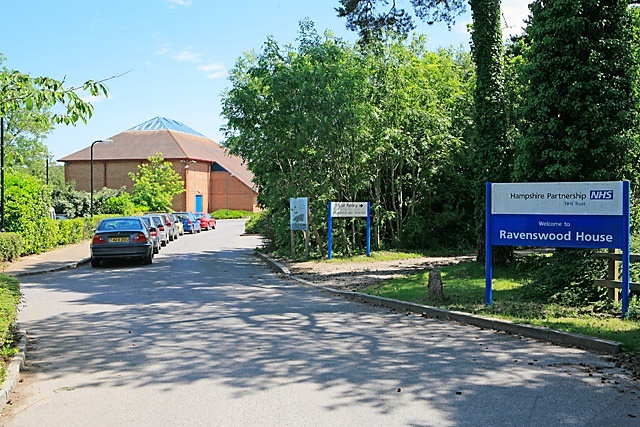15.06.16
Trusts must innovate as no extra ‘funding of significance’ expected – NHS Improvement
 NHS trusts must innovate and collaborate with others to overcome funding shortages, the executive director of improvement for NHS Improvement told NHE.
NHS trusts must innovate and collaborate with others to overcome funding shortages, the executive director of improvement for NHS Improvement told NHE.
Adam Sewell-Jones (pictured)admitted that the NHS is facing a bleak financial picture, with the Chartered Institute of Public Finance and Accountancy recently predicting its deficit could reach £10bn or even £16bn by 2020.
“Our success and funding is no doubt linked to the success of the economy,” he said. “Even a government that are keen to be quite challenging in a policy of austerity have set that several years down the line. There’s not going to be funding of significance coming in in that period. We have to accept that there are some real challenges, but out of those challenges we’ll see a degree of innovation I suspect that wouldn’t have happened otherwise.”
He said NHS trusts in particular need to save money by working together on procurement in order to save money through purchasing power, as recommended in the Carter Review.
“We’ve got this massive purchasing power but if we do our own thing, the strength of being one of the biggest organisations in the world is diluted,” said Sewell-Jones. “So there are some areas where we will be encouraging individuals to take part for the greater good, so I think procurement is an example. There is a sense that if we do things together as an NHS we can drive shared benefit even if individuals might want to be autonomous and do their own thing.”
.jpg)
He added that one area where purchasing power could be used was in staffing, relaxing the NHS’s much-criticised reliance on agency staff.
Sewell-Jones called temporary staffing “a really valuable resource to manage the peaks and troughs” but added: “We’re now in a condition that we’re reliant on temporary staffing at a premium rate in order to do the day job, and I think that’s the issue that we have to get away from.”
In terms of NHS Improvement’s own role, Sewell-Jones said he wanted to dispel the “myth” that the regulator was “creating a big national improvement body”, saying that it was instead going to respect trusts’ autonomy and encourage them to work with the organisation as partners.
“I think the reason why NHS Improvement has come around is because actual or quasi-regulators have focused too much on quality assurance and not enough on quality improvement,” he said. “Something like the CQC – there’s no doubt that there’s a role for that, but we haven’t really tried to leverage 1.3 million people who are passionate about healthcare in the way that we would want to do. We can encourage, but I think there is a time for mandate, but it’s rare. If you work on the premise that everyone wants to come to work to do the best they can, we just need to find ways of unlocking that.”
‘Not invented here syndrome’ is part of NHS challenge
Sewell-Jones said NHS trusts needed to be more willing to learn from others, cautioning: “We do have a challenge that there is a degree of ‘not invented here’ syndrome. If people believe that other people are doing good stuff – while context is hugely important, because you cannot take an idea that worked elsewhere and drop it in and expect it to work – we do describe ourselves as ‘Oh it’s different here, we are different, it won’t work’ rather than an adopt and adapt a principle of ’There’s something that’s good here, let’s make an effort to find how it can work in our organisation.’”
He added that he saw NHS Improvement’s role in this as a “dating agency”, which could encourage different trusts to work together.
“There are some trusts that need intensive support,” he said. “There are other trusts that just need identification of best practice, and they’re perfectly capable of supporting themselves to implement it. And there are others that need more than intensive support but it’s a longer-term programme of support.
“Increasingly the model I want to get us doing a lot of is peer support and buddying. I don’t mean buddying necessarily in the way that it’s been used in terms of special measures scenarios where a struggling trust has been buddied in its entirety with a high-performing one.”
Developing a pipeline of talented executive directors
He also said that one of the “big challenges” facing NHS organisations was the problem of recruiting executive directors and that NHS Improvement wanted to help organisations develop a “pipeline” of their own talent to fill the holes.
A recent joint report between NHS Providers and the King’s Fund warned that the trust chief executive role risks becoming an “impossible job” due to pressures.
He said NHS Improvement was “still finding [its] way” but wanted to “find a middle ground” between the organisations it had replaced, such as Monitor (where he was executive director of provider sustainability), which didn’t make permanent appointments, and the Trust Development Authority, which did.
“Unless there are real concerns about an organisation, we will value the independence of that board but be willing to support and advice should they ask,” he said.
However, this collaborative model isn’t always possible. The troubled Southern Health trust was recently hit by further controversy when its board of governors held a meeting despite orders from chair Tim Smart.

On LinkedIn, governor Peter Bell accused NHS Improvement of having “effectively bypassed” the board by appointing Smart.
Sewell-Jones said he wasn’t personally involved in the discussions with Southern Health, but admitted: “There’s going to be some tension, I’m sure. Particularly trusts that are coming from a position of having earned autonomy may feel that there’s been too much interference.”
He also said that “headroom” was needed to make the necessary improvements in trusts, giving the example of Northumbria Healthcare NHS FT, which achieved an ‘outstanding’ rating after a decade of changes.
Sewell-Jones said NHS Improvement is now working with the American Virginia Mason hospital to implement changes in five trusts which could take up to 15 years. He praised Barking Haywood and Redbridge trusts, saying they’d “been in a challenged position for a number of years” but had aspirations to become “outstanding.”
‘Rebuilding the aeroplane while you’re flying it’
“A personal reflection is that I believe that the financial challenge we face can be dealt with,” he said. “The much spoken about £20bn, I believe can be delivered. Whether it will or not – whether something can be theoretically delivered, there’s often a bit about the capacity to deliver it. We talk about rebuilding the aeroplane while you’re flying it and there’s often a sense that it’s very difficult to deliver all of the opportunities when people are dealing with really busy roles, the today challenges dominate over the longer term ones.
“There will be those who have the view that in part of the political system no money will come, there will be those who take the view that when you look at our spend of GDP on health we are on the bottom of the table, so more funding will need to be delivered.
“But that comes into a political area on taxation and what the electorate decide that they want to do. I’ve always taken the view that even if the task was impossible it doesn’t mean we can’t make a difference and, therefore, our focus has to be to keep challenging people and inspiring people to deliver the best they can.”
Have you got a story to tell? Would you like to become an NHE columnist? If so, click here.